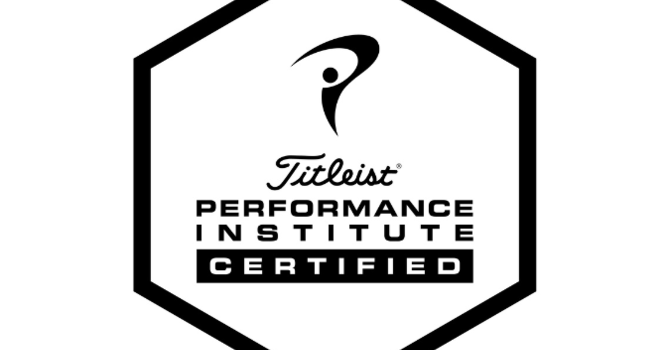
As we grow older, our bodies undergo various changes—some visible, others less obvious. One of the most significant yet often overlooked transformations is the impact aging can have on mental health. From maintaining cognitive function to managing mood fluctuations, mental health requires just as much attention as physical health as we age.
Aging can bring about many challenges, but the good news is that mental health doesn’t have to decline with age. In fact, research shows that what we eat plays a major role in supporting our brain, mood, and emotional well-being throughout life. By making thoughtful food choices and addressing digestive health, we can enhance mental clarity, reduce anxiety and depression, and keep our brains functioning at their best as we age.
In this post, we’ll explore the connection between mental health and diet, focusing on foods that support brain function, digestive health, and overall well-being, including the benefits of probiotics, digestive enzymes, and the importance of greens and proteins.
The Connection Between Gut Health and Mental Health
Recent studies have uncovered an important relationship between the gut microbiome (the collection of bacteria in our digestive system) and our mental health. It turns out that the gut and the brain are deeply connected via the gut-brain axis, a communication network that links the central nervous system to our digestive system. In fact, around 90% of serotonin—the “feel good” neurotransmitter—is produced in the gut, not the brain! This means that if your gut is out of balance, it can directly affect your mood, mental clarity, and even conditions like anxiety and depression.
As we age, our gut health can be compromised for several reasons, including changes in our diet, medications, or a decline in stomach acid production. These disruptions can lead to digestive issues like bloating, constipation, and poor nutrient absorption, all of which can contribute to cognitive decline and mood disorders. To keep both your gut and brain healthy, addressing digestive health is a key part of maintaining mental wellness.
Digestive Issues and Mental Health: Why You Need to Pay Attention
Digestive problems are common as we age. Conditions like irritable bowel syndrome (IBS), gastroesophageal reflux disease (GERD), constipation, and poor nutrient absorption can interfere with how our bodies process food and nutrients, leading to inflammation and other issues that may affect mental health.
In particular, if your digestive system isn’t functioning optimally, you may not be absorbing the essential vitamins and minerals your brain needs to stay sharp and balanced. For example:
- B vitamins (especially B12) are crucial for energy production, cognitive function, and emotional regulation. A deficiency in B12 is often linked to depression and cognitive decline in older adults.
- Magnesium, found in leafy greens, nuts, and seeds, is essential for nerve function and mood regulation. A magnesium deficiency can lead to symptoms of depression, anxiety, and irritability.
- Vitamin D plays an important role in mood regulation and has been associated with lower rates of depression and anxiety. A lack of sunlight exposure and poor digestive function can lead to vitamin D deficiency.
When digestive issues aren’t addressed, it can create a vicious cycle of poor nutrition, cognitive decline, and worsened mental health.
Probiotics and Digestive Enzymes: Keys to Gut-Brain Health
To improve both gut and mental health, probiotics and digestive enzymes can be incredibly helpful.
- Probiotics: These beneficial bacteria help balance the gut microbiome, improve digestion, and enhance the absorption of essential nutrients. By improving gut health, probiotics may also help regulate serotonin levels, which can reduce feelings of anxiety and improve mood. Many probiotic-rich foods—such as yogurt, kefir, kimchi, sauerkraut, and miso—can be added to your diet. For some people, supplementing with a high-quality probiotic can be beneficial.
- Digestive Enzymes: As we age, our bodies produce fewer digestive enzymes, which can lead to bloating, gas, and difficulty absorbing nutrients. Taking digestive enzyme supplements can help break down food more efficiently, making it easier for your body to absorb essential nutrients like amino acids, vitamins, and minerals. This can support cognitive function and mood stability by ensuring your brain gets the nutrients it needs to perform at its best.
Greens: Powerhouses for Brain Health
Incorporating more greens into your diet is one of the best things you can do for both your gut and mental health. Leafy green vegetables like spinach, kale, collard greens, and Swiss chard are rich in folate, a B vitamin that supports cognitive function and reduces the risk of depression. These greens also provide fiber, which helps support a healthy gut microbiome and proper digestion.
Additionally, greens are loaded with antioxidants, which fight oxidative stress—an imbalance of free radicals in the body—that can contribute to brain aging and cognitive decline. Antioxidants like vitamin C, vitamin E, and beta-carotenefound in greens and other vegetables help protect the brain from inflammation and support overall mental wellness.
Proteins: The Building Blocks of Brain Function
Amino acids, the building blocks of protein, are essential for producing neurotransmitters like serotonin, dopamine, and norepinephrine—chemicals that regulate mood, focus, and energy levels. As we age, our ability to maintain lean muscle mass may decrease, and this can affect both physical and mental well-being.
Eating high-quality proteins—such as fish, chicken, eggs, tofu, beans, lentils, and Greek yogurt—ensures you’re getting the amino acids necessary for optimal brain function. Proteins also help stabilize blood sugar levels, which can help prevent mood swings and energy crashes throughout the day.
Particularly, omega-3 fatty acids—found in fatty fish like salmon, mackerel, and sardines—are crucial for brain health and can help prevent cognitive decline and depression. Omega-3s have anti-inflammatory properties that protect the brain and improve overall mental clarity.
Other Mental Health-Boosting Foods for Seniors
- Berries: Rich in antioxidants, berries like blueberries and strawberries help protect the brain from oxidative stress and can improve cognitive function.
- Avocados: High in healthy fats and folate, avocados help improve blood flow to the brain and support mood stability.
- Turmeric: Known for its anti-inflammatory properties, turmeric (specifically its active compound curcumin) may help improve mood and reduce symptoms of depression.
- Nuts and Seeds: Walnuts, almonds, and chia seeds are rich in omega-3 fatty acids and antioxidants, both of which are essential for brain health.
Conclusion: Nourish Your Gut, Nourish Your Mind
Mental health should be a priority as we age, and the foods we eat play an essential role in maintaining cognitive function, mood stability, and overall well-being. By focusing on nutrient dense foods that support gut health—such as probiotics, digestive enzymes, greens, and high quality proteins—you can help keep your mind sharp, your mood balanced, and your body in good working order as you age.
Remember that your gut health and mental health are deeply intertwined. By making mindful food choices, addressing digestive issues, and supporting healthy gut bacteria, you can enjoy not only better digestion but also better mental health, more energy, and a higher quality of life as you get older.
What changes have you made to your diet for better mental health as you age? Need some suggestions or want help getting started? Make an appointment with Dr. Sheryl and learn more about the relationship between your body and your mind for overall health and wellbeing.




